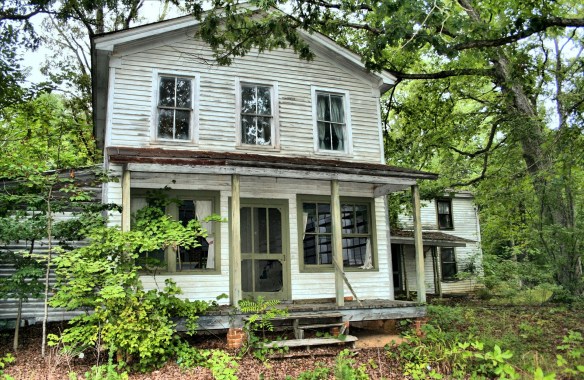The Saint Louis Post-Dispatch quoted me (from an AP story) in Kansas City Presses To Sell Eyesore, Vacant Homes for A Buck. It reads, in part,
Drawn to the idea of buying a house for just a buck, Dorian Blydenburgh paced through the century-old digs in south Kansas City and didn’t mind tree limbs on the living room floor, holes in the ceiling and a funky mold smell.
“This is one everyone is gonna want, and there’s gonna be a fight for this,” said Blydenburgh, 56, a contractor looking at the three-bedroom, 1,500-square-foot house at 4124 Chestnut Avenue as a makeover prospect for a friend, who later applied to buy it. “Some of these places you need a bulldozer to fix, but this is doable. For a dollar, it looks like a go.”
That’s what Kansas City, Mo., officials were hoping to hear. The city and the Land Bank of Kansas City have offered 130 derelict, generally unlivable structures for sale for $1 each to those willing to make them livable again within a year. The buyer’s reward is an eventual $8,500 rebate — the amount it would have cost the city to flatten the houses.
* * *
But it’s buyer beware. Applicants must undergo a background check — applicants who are registered sex offenders or have drug-dealing or prostitution convictions are disqualified — and prove through bank statements or unused credit card limits they have at least $8,500 to devote to the rehab.
Ultimately, the program’s backers warn, rehabbing the properties might cost tens of thousands of dollars, perhaps involving installing or repairing roofs, electrical systems, plumbing, heating and air conditioning or foundations. And that’s beyond the cost of tackling troubling unknowns such as lead or asbestos.
“Most of those buildings on the dangerous list are going to have to come down. We know that,” Mayor Sly James said. “But there are other homes on that low level that could be salvaged, and we want people to know they are out there.”
Other cities have tried similar approaches. In Detroit, with the help of tens of millions of dollars from taxpayers, the city has torn down about 7,100 of an estimated 30,000 to 40,000 vacant houses since May 2014, with the mayor planning to have an additional 15,000 homes gone by 2018. More than 1,300 other homes have been auctioned, Detroit Land Bank Authority spokesman Craig Fahle said. Buyers of those properties, many fetching just the opening bid of $1,000, are required to bring the house up to code and have it occupied within six months — nine months if it’s in a historic district.
Chicago and Milwaukee have are unloading vacant lots. Chicago has sold more than 400 vacant parcels since 2014. In Milwaukee, homeowners next to a vacant lot can buy it for $1.
David Reiss, a Brooklyn Law School professor who focuses on real estate issues and community development, urges would-be buyers to understand the expenses beyond the price tag, including property taxes, upkeep and liability insurance.
“A house for a dollar may be an albatross around your neck,” he said. “I would look at it case by case. If it sounds too good, it probably is.”



